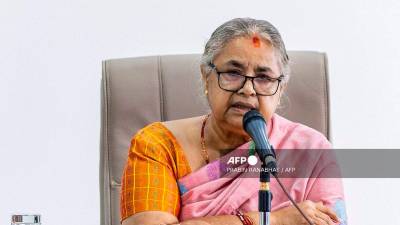KATHMANDU: Sushila Karki has officially assumed office as Nepal’s prime minister on Sunday following her appointment to lead the interim government.
The country’s first woman premier, who previously served as chief justice, was sworn in on Friday by President Ramchandra Paudel in response to protesters’ demands after the ousting of the elected government of KP Sharma Oli.
She began her official duties from the Home Ministry building in Singha Durbar after the previous prime minister’s office was set on fire during recent protests.
Among her early decisions was providing assistance to victims of last week’s protests that left at least 51 people dead and many others injured.
Chief Secretary Eknarayan Aryal confirmed the government recognised those killed in the “Gen Z” movement as martyrs, with each affected family receiving financial support.
Hospitals received instructions to offer free medical treatment to those injured during the mass protests triggered by a ban on social media platforms.
The protests evolved into a broader movement against alleged corruption and nepotism among Nepal’s political elite, with demonstrators targeting residences, the Supreme Court, and other public buildings.
President Ramchandra Poudel dissolved the 275-seat parliament on Friday shortly after naming the 73-year-old Karki as interim prime minister, fulfilling a major demand by protest leaders.
Nepal’s major parties have criticised the dissolution of parliament and called for its immediate reinstatement through a joint statement issued on Saturday.
The Nepali Congress, CPN-UML, CPN (Maoist Centre), CPN (Unified Socialist), Janata Samajbadi Party, Loktantrik Samajbadi Party, Nepal Workers and Peasants Party, and Janamat Party demanded the decision be reversed, saying it undermined the Constitution.
The parties cited Article 76 (7) of the Constitution and Supreme Court precedents, arguing the president’s step broke constitutional practice.
Their joint statement asserted that this move undermines the people’s mandate and strikes at the very supremacy of Nepal’s Constitution.
The statement added that protesters’ demands should be addressed through an institution voted by the people rather than through parliamentary dissolution.
The government has scheduled elections for March 5 to address the ongoing political crisis and establish a new democratically elected administration. – Bernama
